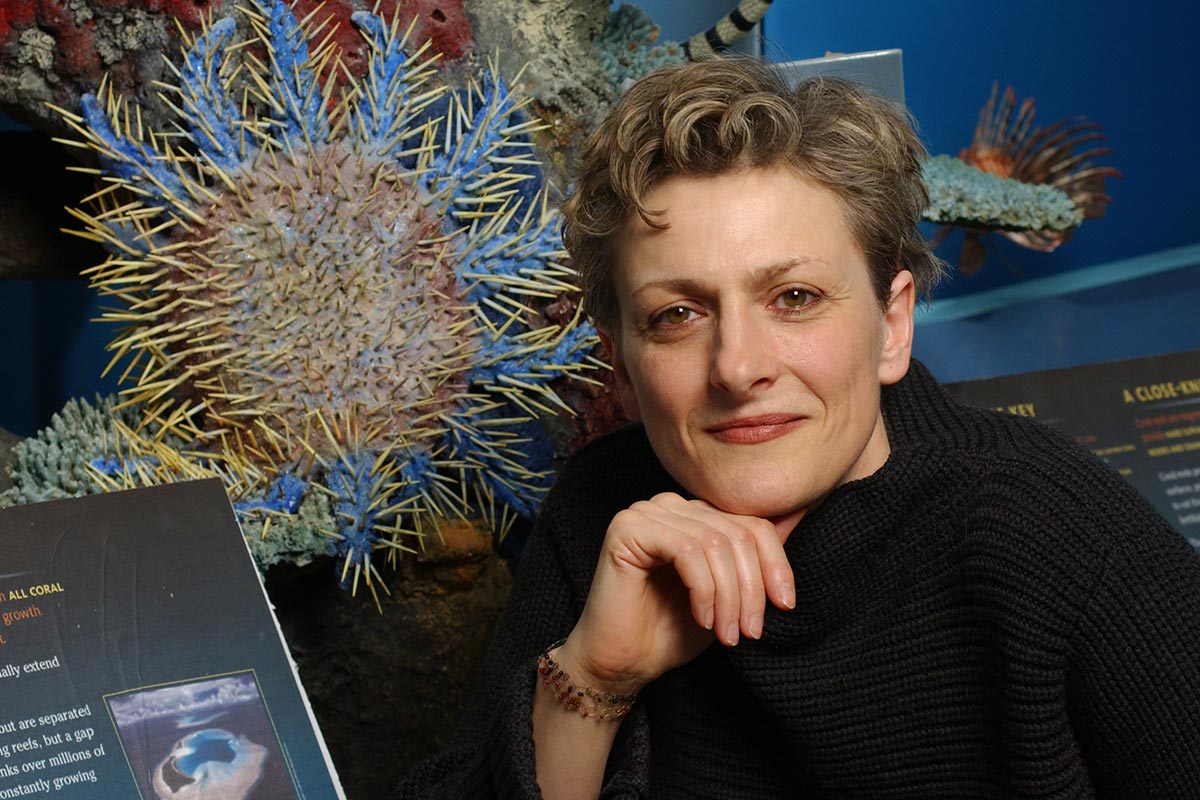COURSE AUTHOR
Melanie Stiassny

Dr. Melanie Stiassny is the Axelrod Research Curator and Curator-in-Charge of the Department of Ichthyology at the American Museum of Natural History. Her research interests are in the systematics and evolutionary biology of fishes, with a particular focus on freshwater conservation and the biodiversity of Old World tropical systems.
Melanie remembers her early interest in scientific research stemmed from when she was a young girl and her mother would take her to visit the British Museum of Natural History in London. At first the frogs and worms held her attention, but soon she was won over by fish and their amazing diversity.
After completing her undergraduate studies in zoology, Melanie was keen to go on to study evolution at the graduate level. For her Ph.D. at the University of London, she worked with a British Museum scientist who focused on the cichlids, a family of tropical fish found in South and Central America, continental Africa, Madagascar and southern India.
Following her Ph.D., she continued to research cichlids during a two-and-a-half year postdoctoral fellowship at the University of Leiden in the Netherlands and then took up a position as Assistant Professor at Harvard University, where she taught courses in systematics and fish biology for five years.
In addition to her position at the Museum, Melanie is also an Adjunct Professor at both Columbia University and the City University of New York. She is a scientific advisor to various scientific and conservation organizations, including the World Wide Fund for Nature, Conservation International, the World Resources Institute, the MacArthur Foundation, and the International Foundation for Science. She is currently on the editorial board of the academic journal Conservation Biology.
Melanie became captivated by African cichlids during her research for her Ph.D. Not only were they a group on which very little research had been carried out up to that point, but they provided a wonderful opportunity for her to pursue her abiding interest in questions of evolution.
This highly diverse fish family demonstrates extraordinary rates of speciation, adaptive evolution and unique parenting behaviors. Melanie credits the success of cichlids on their complex parenting behavior. Cichlids look after their young for 3-4 weeks. This contrasts sharply with most fishes which simply congregate to spawn, leaving fertilized eggs to develop unattached. Cichlid populations, therefore, are less dispersed than, and relatively isolated from, other fish populations. Isolated species tend to speciate. The cichlids' parenting behavior gives them an evolutionary advantage; it means that they speciate and evolve at a rate faster than most fish families.
Melanie's doctoral research took her to Madagascar in search of ancestral cichlids, the earliest branch on the cichlid family tree. While there, she was confronted by issues of conservation. Madagascar had undergone so many changes effected by humans that most of the Malagasy cichlid species were gone. In fact, it took her a long time to find one Malagasy cichlid. This made her realize that in order to study these fish, she had to become involved in plans to save their habitat. Her concern inspired Melanie to become active in other global conservation issues.
Most recently, she has been working in Gabon in equatorial West Africa with an international team of researchers studying freshwater biodiversity. Scientists believe that the rain forests and freshwater ecosystems of Gabon are some of the most diverse on the planet. As is so often the case, however, these places have not yet been studied in depth. Such basic research is of urgent importance, particularly as the survival of many species is threatened by the predatory activities of the logging industry. Fish species are often food species, and the extinction of these species, however great their intrinsic and scientific worth, could create major problems of food security for local human populations.
The Gabon Project aims to increase awareness of freshwater communities and conservation issues in central Africa. Freshwater ecosystems, particularly those in tropical regions, harbor an extraordinary concentration of the world's biodiversity, yet these ecosystems are among the least understood and the most threatened.
In addition to exploring the region's biodiversity, the Gabon Project aims to help build capacity in the host country. Currently, there are no in-country experts in ichthyology in Gabon. Scientists from the expedition plan to establish a teaching collection at the university in Libreville where students and scientists can study regional biodiversity and develop local solutions to problems that have serious local effects.